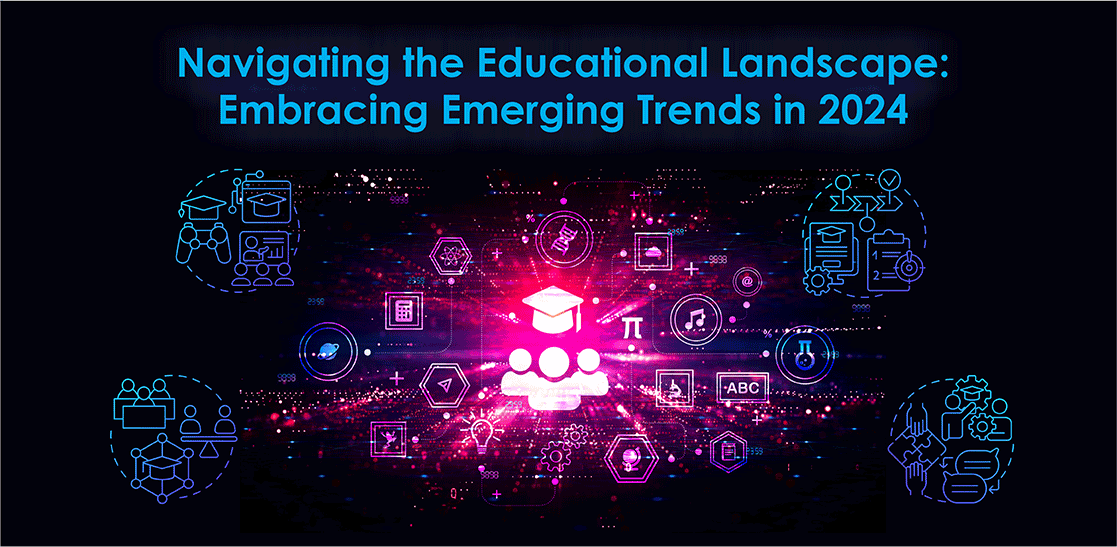![]()
Imagine a classroom buzzing with activity, students collaborating on virtual reality projects, delving into coding challenges, and deliberating on solutions to real-world problems. This is a glimpse into the new age of school education. Let us delve into the exciting educational trends materialising in 2024:
1. Skill-based Learning takes Centre Stage:
Education today places a strong emphasis on skill-based learning. The days of just memorising facts are long gone. Today’s classrooms focus on equipping students with critical thinking, logical reasoning, problem-solving, collaboration, communication, and creativity skills—essential tools for success in the 21st century. This shift towards skill development empowers students to hold their own in a rapidly changing world, regardless of the specific career path they choose.
2. Embracing Technology for Personalised Learning:
Educational Technology (EdTech) is no longer a novelty; it is a powerful tool transforming classrooms. Interactive online platforms, adaptive learning software, and immersive virtual reality (VR) experiences are personalising the learning journey. A one-size-fits-all strategy is quickly becoming historical lore. Nowadays, students can learn at their own pace, explore topics in-depth, and receive categorical support based on their individual needs. EdTech allows educators to become facilitators of learning, guiding students on their unique educational paths.
3. Blended Learning: The Future is Flexible
The rigid structure of traditional classrooms is becoming obsolete. Blended learning, which seamlessly integrates online and in-person instruction, is gaining traction. This approach offers students the flexibility to learn independently through online modules while still benefiting from face-to-face interaction with teachers and peers. Blended learning fosters a more engaging and efficient learning environment, catering to diverse learning styles.
4. Cultivating Digital Fluency, Not Just Literacy
In today’s world, only possessing digital literacy is no longer enough. Educational institutions are now enhancing digital fluency, empowering students to not only navigate technology responsibly but also leverage its power for learning and innovation. This includes coding skills, data analysis, and the ability to create and share digital content effectively. By fostering digital fluency, schools prepare students to become active participants in the digital landscape.
5. A Holistic Approach: Focus on Well-Being
Education in 2024 recognises the importance of a well-rounded student. Alongside academic excellence, schools are prioritising student well-being. Programmes promoting mindfulness, social-emotional learning (SEL), and physical activity are becoming increasingly common. Nurturing mental and physical well-being equips students to manage stress, build resilience, and develop healthy habits that benefit them throughout their lives.
6. A Call for a Sustainable Future
The need for sustainability education is more critical than ever. Educational institutions are integrating sustainability principles across the curriculum, encouraging students to understand environmental challenges and develop solutions. This includes responsible resource management, climate change awareness, and inculcating a sense of environmental stewardship. By equipping students with the knowledge and skills to build a sustainable future, we empower them to become accountable.
The Road Ahead
As we navigate the evolving educational landscape of 2024, these trends highlight the shift towards a more student-centric, technology-driven, and holistic approach to learning. By embracing these trends, we can create a future where education empowers students to not only become lifelong learners and critical thinkers, but also sentient, humane, and responsible global citizens.
Check out programmes like V-EMBARK and Climate Academy offered at the VIBGYOR Group of schools.
